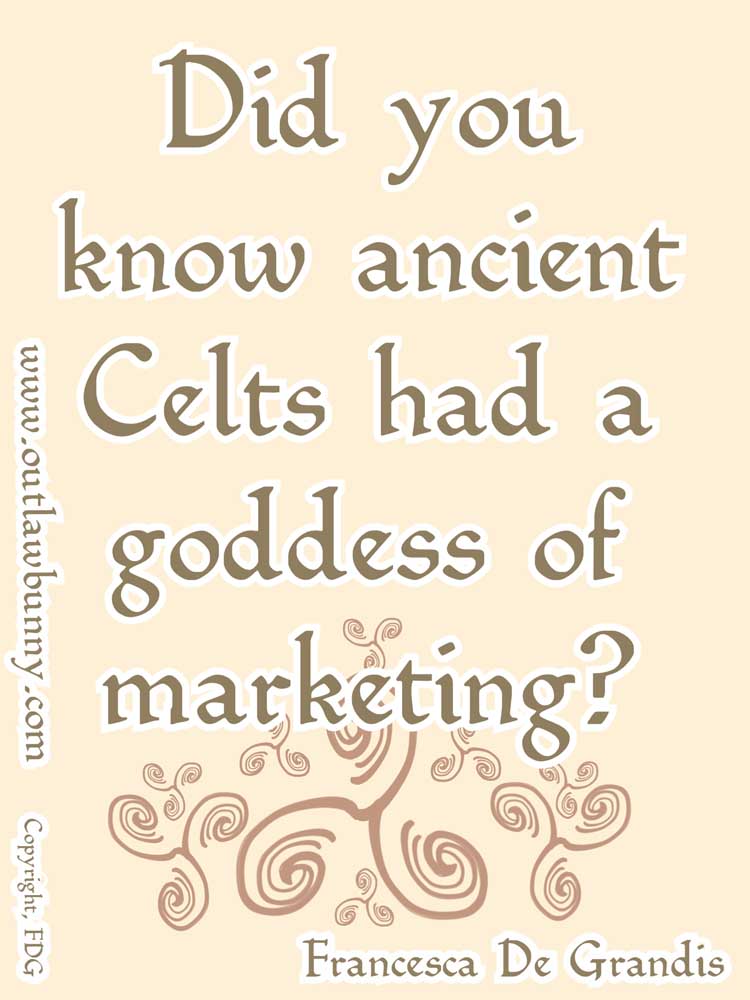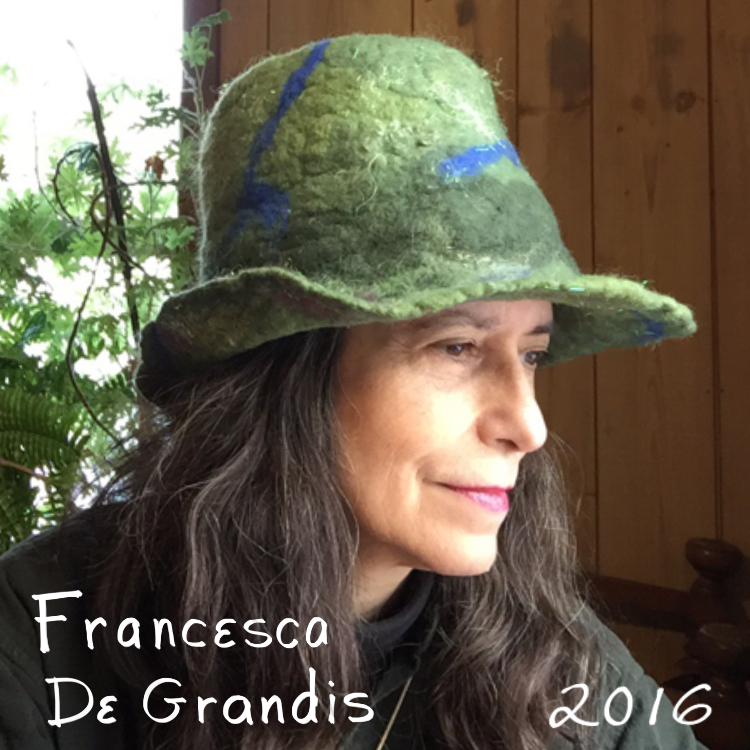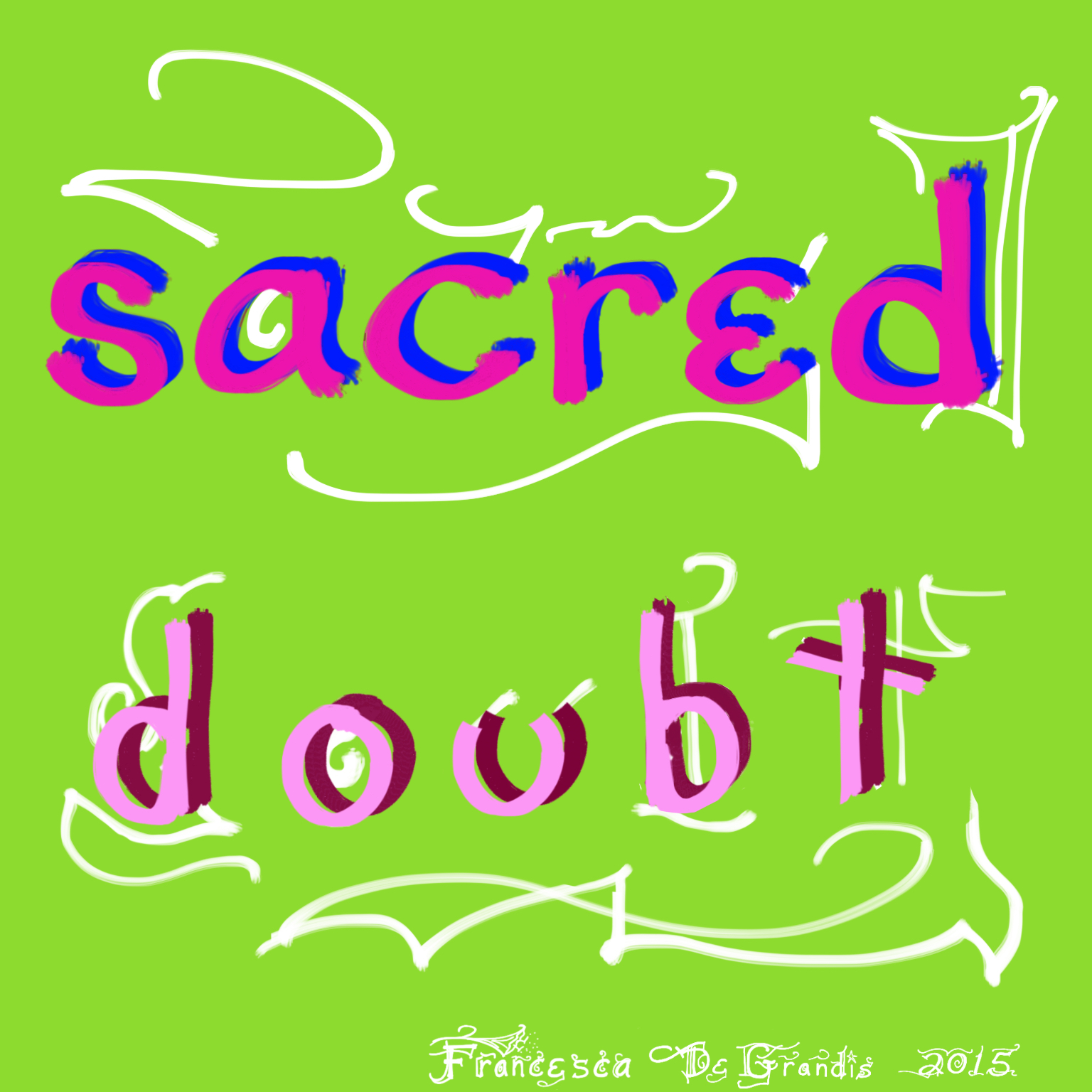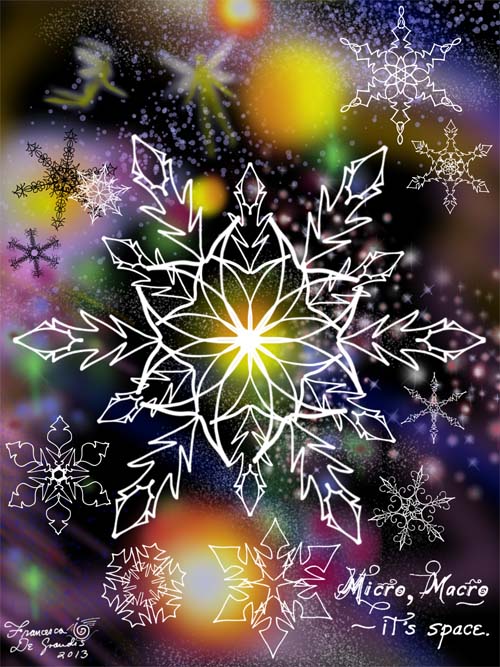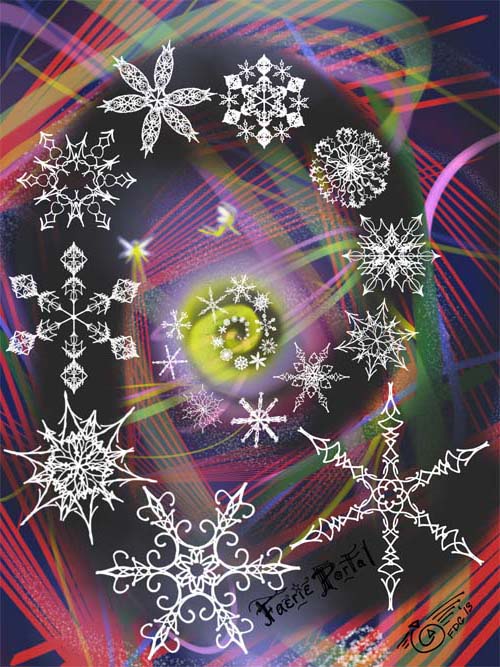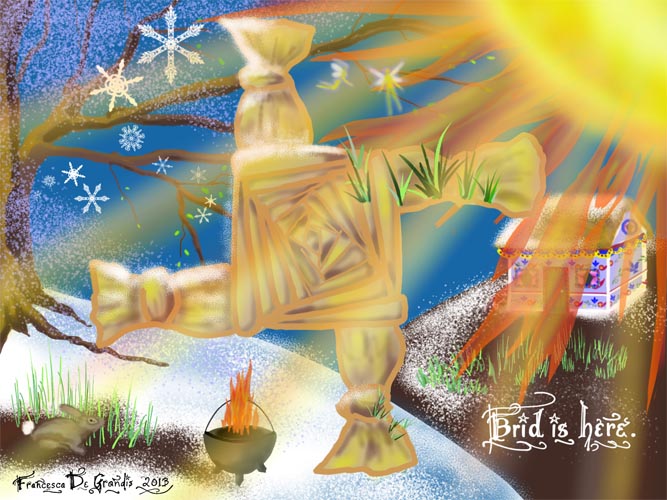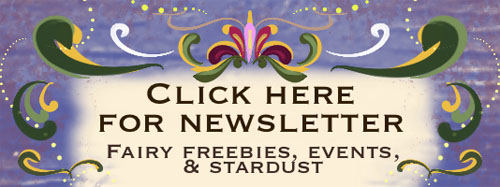What is Oral Tradition?
Oral tradition is spoken communication that conveys ideas, societal customs, and cultural underpinnings such as ancestral practices. Forms of oral tradition communications include folk tales, other lore, and poetry. There are exceptions to oral tradition being the spoken word. For example, live music can be oral tradition.
The above definition of oral tradition is the one most people will see in books and on websites. And it is a good start.
 What if that’s not enough for you? What if the term oral tradition calls to you in ways that the above definition doesn’t address?
What if that’s not enough for you? What if the term oral tradition calls to you in ways that the above definition doesn’t address?
What if the words oral tradition invoke something wild and mystical for you, and you know there must be more than the common definition?
What if you sense mysteries that are never spoken, but you sense they are in oral tradition?
Perhaps you have another reason that the usual answer to “What is oral tradition?” is not enough for you.
If so, you’re in the right place. That usual and widespread definition is not enough for me.
I’ll give you a larger definition from my heart and bone marrow. I spent years analyzing what I experienced and observed and how to express all that.
Most of this post is theories I developed based on those experiences and observations. Often, the best ways to express my theories are:
* lyrical writing
* storytelling
* sharing my personal feelings
* and other approaches that are far from the usual means of communicating theories.
I put a lot of work into my theories. I take pride in that. I am also proud that my theories come from years of analysis, common sense, intuition, and trust in my emotions.
Telling a personal story is the best way to start a larger definition of oral tradition. I wrote the following in October 2011. I don’t know if I’ve shared it until now:
I get frustrated because I’m devoted to oral tradition, grew up in it, but can’t explain it—it is so foreign to our society. The Fairy Witch classes I teach and the Shamanic counseling I give are oral tradition. But I can’t get across what I do in them because it can’t be explained. It has to be experienced.
When I do talk about what happens in my classes and counseling, it sounds like promotional hype. The classes and counseling sessions are filled with amazing gifts from the Fairy King and Queen and my ancestors. So I try to explain these gifts. They can only be expressed with the passion I feel about them. No dry logic would do. I feel impelled to share these gifts because I love them and want folks to have access to their immense power. But the passion and inexplicable nature of oral tradition make my words sound like promotional hype.
But, wow, despite all that, I am jazzed! Today, I wrote some poetry and prose poetry combined that gets it across a little:
Oral Tradition
Spaces between the spoken word. Tiny gemlike emptiness that can’t be caught on paper. Places and feelings that aren’t captured by memory (unless your cells are teachable. Even then, remembrance fails, your cells need to relearn the lessons). Moments that can’t be duplicated, conveyed a second time, even by the finest performer.
People being—operative word being—together.
We gobble being up
like it is an ice cream sundae;
we each get a spoon—the moment is shared,
we have chocolate running down our chins,
we grin at each other,
even if we are joined together on the phone
instead of in person.
On the phone, we are in person
when we work in oral tradition.
The above gives a glimmer of oral tradition, but conveying a little bit of it is something. If I could describe it fully on paper, it would not be oral tradition.
How to Learn Oral Tradition
If you want to learn the oral tradition of a particular culture, here are three guidelines:
1) Sit with someone who grew up in that culture and loves it.
2) Pay attention to more than their words.
3) Choose someone who is loving to sit beside.
Let’s look more thoroughly at those guidelines:
![]() To learn the oral tradition of a particular culture, sit with someone who grew up in that culture and who loves it. You can be with them in person, by phone, or on Zoom.
To learn the oral tradition of a particular culture, sit with someone who grew up in that culture and who loves it. You can be with them in person, by phone, or on Zoom.
You can be with them in a class they are teaching about the culture in question. You can be with them in a class they are giving about something else. You can be with them by driving them to the grocery store.
If all a person does is lecture abstractly about their culture, you’re only learning ideas. Ideas alone do not make not oral tradition.
Not everyone loves the culture in which they were raised. Here’s a story that shows why that matters.
I grew up in a Shamanic culture. It was the culture of my family. My mother came from a centuries-old family tradition of Fairy Witchcraft. And my siblings will swear that my mother was not a Witch.
Their reaction is not exclusive to my family. I disclosed to an Indigenous American Shaman that my mom had trained me to be a Shaman. I refrained from telling him that my siblings did not recognize my mother’s Witchcraft. But he responded that his mom had trained him to be a Shaman, and that his brother insisted their mother had not been a Shaman. I was grateful for his disclosure because it echoed my similarly odd history. I felt less alone in hereditary Shamanism.
 Like many aspects of oral tradition, the blindness of siblings to magic that another child in the family sees is puzzling. Here’s the theory I developed. If you do not have love for a culture, you don’t see it. Think of how colonizers look at Indigenous People as uneducated savages, clearly demonstrating that the colonizers are the uneducated savages. That is an extreme example to make the issue clearer. But the problem doesn’t have to be that extreme. I am not suggesting that anyone who doesn’t see magic is savage and uneducated.
Like many aspects of oral tradition, the blindness of siblings to magic that another child in the family sees is puzzling. Here’s the theory I developed. If you do not have love for a culture, you don’t see it. Think of how colonizers look at Indigenous People as uneducated savages, clearly demonstrating that the colonizers are the uneducated savages. That is an extreme example to make the issue clearer. But the problem doesn’t have to be that extreme. I am not suggesting that anyone who doesn’t see magic is savage and uneducated.
My siblings were not tuned to magic, so they never saw it, let alone as a cultural part of our hearth.
Well, I know they saw it sometimes because occasionally they admit Mom’s incredible psychic abilities and Witch spirituality … and then deny them moments later. So in the long run, they don’t admit Mom was a Shaman.
Now to expand on my second guideline for learning in oral tradition:
![]() Pay attention to more than words. Pay attention to gestures, silences, emotions in the air, and how you respond to them.
Pay attention to more than words. Pay attention to gestures, silences, emotions in the air, and how you respond to them.
Oral tradition is not only the spoken word. It is also everything else in the moment.
You will notice how the second guideline weaves with the third:
![]() Choose someone who is loving to sit beside.. Then the gestures, silences, and everything else in the moment will be filled with love, kindness, and compassion.
Choose someone who is loving to sit beside.. Then the gestures, silences, and everything else in the moment will be filled with love, kindness, and compassion.
If someone’s words are mostly ego-ridden, constantly emphasizing that their ideas are important and the only right ones, walk away fast. Find someone else.
 Oral tradition is about people being together. So if someone is filled with arrogance, it fills the moment, the air, and you with toxic energy. You are receiving a dysfunctional version of oral tradition. This is one of many reasons I advise you to pay attention to how you respond to gestures, silences, and emotions in the air. When you examine your reactions to someone’s company, you can sense whether they are good company.
Oral tradition is about people being together. So if someone is filled with arrogance, it fills the moment, the air, and you with toxic energy. You are receiving a dysfunctional version of oral tradition. This is one of many reasons I advise you to pay attention to how you respond to gestures, silences, and emotions in the air. When you examine your reactions to someone’s company, you can sense whether they are good company.
Arrogance and pride are not the only toxins that can fill the moment. Just as a loving person adds love, kindness, and compassion to the moment, so a person who harbors hatred brings hate, cruelty, and judgmental condemnation.
Some individuals skillfully mask their judgmental nature and other flaws as the high moral ground. Some individuals mask abusive expressions of anger as righteousness. Anger is healthy. Expressing it abusively is not.
I learned all this the hard way. After Mom died, continuing to train as a Fairy Shaman in oral tradition was almost impossible because I could not find anyone else who taught through an oral Fairy tradition. I finally found one person. There was a lot wrong with him. I studied with him anyway. I justified my decision by thinking that I could handle it. After all, I was already a powerful savvy Witch. I paid dearly. Don’t settle. Study on your own and pray for the right teacher. The teacher will come.
We are all flawed. No teacher is going to be a perfect human. But find a loving one. Note your experiences of the moments when you are with a teacher. That will help you choose someone who is loving. Don’t settle for less.
For full disclosure, I need to admit that, as a young priestess teaching Shamanism, my own arrogance got in the way. Luckily, it did not take long for me to see how hurtful I was. I changed my ways.
A Story about Learning Oral Tradition
The following story illustrates some points I’ve made about learning through oral tradition:
 My mother taught me Witch spirituality from the day I was born. But she never mentioned the word Witch until she was on her deathbed. A lot of what she taught was by example. I do not mean I only watched her do ritual. Her mundane actions demonstrated Witch spirituality by embodying it. She taught me Witch spirituality mostly by the way she walked through the world on a daily basis. Here are examples: her business savvy, her excellence in the kitchen, her fierce protectiveness of me, and her loud uninhibited laughter.
My mother taught me Witch spirituality from the day I was born. But she never mentioned the word Witch until she was on her deathbed. A lot of what she taught was by example. I do not mean I only watched her do ritual. Her mundane actions demonstrated Witch spirituality by embodying it. She taught me Witch spirituality mostly by the way she walked through the world on a daily basis. Here are examples: her business savvy, her excellence in the kitchen, her fierce protectiveness of me, and her loud uninhibited laughter.
Here is another way Mom taught me: I was surrounded by her essence every day. That’s the nature of living with someone. So, even were she not practicing magic, her Fairy energy surrounded me, sinking into me. Therefore, the patterns, rhythms, beauty, and power of her magic became mine.
I want to phrase that a bit better: “Even were she not practicing magic overtly, …” Adding that word is important. For one thing, a lot of oral tradition magic is woven so seamlessly into everyday activities that it escapes notice. For another, everything is magic. Every person on the planet is always doing magic, whether they know it or not. In either case, her magic surrounded me.
Oral Tradition and Magic
Ritual is one of the most important parts of oral tradition. It is also a pivotal way that oral tradition can transmit power.
 Oddly enough, most published definitions of oral tradition do not include ritual, let alone include it as one of the main ways to orally transmit ideas, culture, etc.
Oddly enough, most published definitions of oral tradition do not include ritual, let alone include it as one of the main ways to orally transmit ideas, culture, etc.
I think the rituals of oral tradition are often left out of publications for two reasons.
1) Ritual can be subtle, especially in oral tradition. Someone might be praying silently while pouring you a cup of tea. Many anthropologists and other outside observers overlook anything that is not right in their faces.
2) Academics hogged the mainstream dialogue that defined oral tradition. Search “oral tradition” online, and you’ll mostly see academic definitions. If this dialogue included more indigenous groups, working-class people, and other less privileged individuals, a different dialogue and definition would emerge.
Let me expand on the two reasons.
 Academia tends to reinforce systemic oppression. Ignoring a non-colonizer culture’s subtleties helps minimize that culture’s nuanced sophistication and its importance. This reinforces arguments that justify eradicating the culture.
Academia tends to reinforce systemic oppression. Ignoring a non-colonizer culture’s subtleties helps minimize that culture’s nuanced sophistication and its importance. This reinforces arguments that justify eradicating the culture.
Leaving out ritual and its importance in oral tradition minimizes the power that ritual gives its participants. So fewer people turn to oral tradition, not knowing the immense power that it can give them. In other words, academics will say that oral tradition conveys cultural sensibilities. That’s wonderful. But more people would turn to oral tradition if they understood that oral tradition rituals help cultural sensibilities come alive in one’s heart and cells, instead of being ideas alone. Ideas are powerful but the ability to embody them is more powerful. The wisdom of ancestors and other resources that are in our DNA and resist oppression can come forward during oral tradition rituals. Rituals instill other powers too.
People who reinforce systemic oppression do not want less fortunate individuals to find sources of power.
No one has expertise in all oral traditions. This essay emphasizes oral tradition and Shamanism. It is a weaving in which I am expert. Also, I am committed to sharing oral tradition in the context of Shamanism in my classes and counseling. I thought this essay might help explain my work. (… Or should I say “committed to sharing Shamanism in the context of oral tradition”?)
As I said, oral tradition cannot be defined or explained. It can only be experienced. In that vein, I won’t try to fully explain the relationship between oral tradition and magic. The relationship is only understood through experiential lessons.
But if I move away from trying to define the undefinable and give illustrations instead, they might be helpful:
Learning Magic from My Mother Experientially
From birth, Mom helped me strengthen and refine my natural-born magical gifts. Here is one way she did this:
From my earliest memory, Mom wrapped the ancient Faery Faith around me, not as an abstract idea but as a living magic.
This magic was in my Fey-touched mother’s maternal love. All powers are in a mother’s love, including love and magic from the Fairy King and Queen. These ancient Gods helped Mom be loving. Her love is a role model for my behavior in my classes: The words I choose, how I say them, and whatever else I do during and between my words.
Here are more illustrations:
Teaching Magic Experientially
I teach Shamanism as an oral tradition. During class, I am not talking at you. We are in ritual together, in Fairy realms. It is psychically kinesthetic. We walk between the stars and become star-drenched.
The lessons are experiential learning. Mind you, my students learn not only from doing magic and experiencing oral tradition, but also from my linear, logical explanations of magical techniques and other parts of Fairy Shamanism. But even if an explanation on the surface is a lecture, we are in ritual. The explanations are ritual. And as ritual, they too are experiential learning.
I was born a good luck charm and an amulet for peace, prosperity, and more. Good luck, peace, prosperity, and other blessings fill the air around you during a class meeting. Like I said, the energy of the participants fill the space. If you’d like to learn more about my talismanic ability, click here.
Just as my mother taught me Witch spirituality by embodying it, I try to walk my talk in interactions with my students.
Where to Go from Here for Oral Tradition Shamanism
You can learn oral tradition Shamanism, live in oral tradition Shamanism, live in magic, be magic, draw on magic. Here’s how:
Experiential learning: Attend one of my free rituals to experience the mysteries of oral tradition magic. Subscribe to my newsletter for announcements of upcoming rituals. Click here to subscribe.
 As I said, you can’t explain oral tradition in print. I wrote this essay in hopes it would affirm your wild longing for something beyond the printed page, beyond dry definitions of oral tradition, beyond equally desiccated definitions of magic, and past the supposedly informed opinions of oppressors. Those opinions are lies. They not only conceal magic and mysticism, but also help suppress and destroy the culture and power of many groups.
As I said, you can’t explain oral tradition in print. I wrote this essay in hopes it would affirm your wild longing for something beyond the printed page, beyond dry definitions of oral tradition, beyond equally desiccated definitions of magic, and past the supposedly informed opinions of oppressors. Those opinions are lies. They not only conceal magic and mysticism, but also help suppress and destroy the culture and power of many groups.
Your wild longings are beautiful, holy, and rich with dignity. Your passion for life is blessed by ancient Gods. So mote it be!




